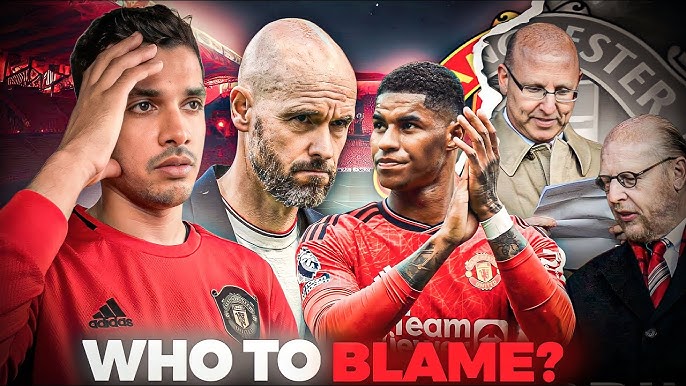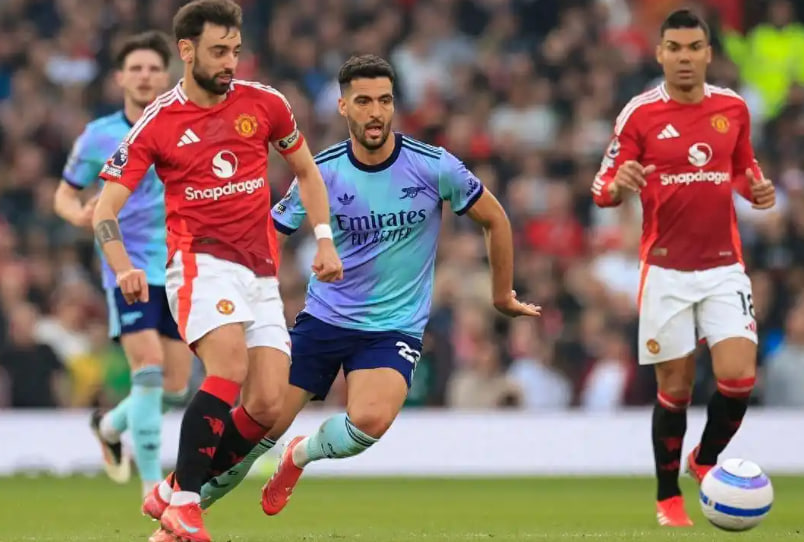When people think of Manchester United, many still recall the glory days of the Ferguson era—dominating the Premier League and regularly competing in the Champions League. Back then, the Red Devils were the undisputed kings of English football. But who could have imagined that just a decade later, this once-mighty team would be unable to qualify for any European competitions?
How dire is the situation now? If Chelsea wins at home against Nottingham Forest, Manchester United will become the only one of the Premier League’s six traditional powerhouses without any European competition to play in. No Champions League, no Europa League, not even the Conference League. Such a scenario would have been unthinkable just a decade ago.

Looking back to 2017, Jose Mourinho led a squad of injured players to win the Europa League title. After the final, many of the starting players had to walk onto the pitch with crutches to collect their medals. Though it was just the Europa League, it felt like a symbolic victory at the time. Little did anyone know that this triumph would become Manchester United’s last moment of glory.
At the time, Mourinho said, “Finishing as Premier League runners-up with Manchester United is my greatest achievement.” This statement angered the club’s veteran players, who believed that Manchester United’s goal should always be the championship, and that finishing as runners-up was nothing to be proud of. What happened? Mourinho was sacked shortly after, and has never returned to manage a top-tier club.
After Mourinho’s departure, Manchester United went through several managers, but their performance remained inconsistent. When Ole Gunnar Solskjaer arrived, fans were optimistic, as he was a familiar face at the club. The first few seasons showed some improvement, with the team finishing second in the league and nearly winning the Europa League. However, due to poor decision-making by the management, the team began to decline again.
What’s most frustrating is that Manchester United has changed coaches more often than they change their jerseys in recent years. They have had three head coaches in the last season, setting a new record for the worst performance in the club’s history. Forget about competing for the championship, even finishing in the top four is now a pipe dream.
So the question is, how did Manchester United end up in this situation? Who pushed this century-old powerhouse step by step into the abyss?
First, we must mention the Glazer family. This American conglomerate has controlled Manchester United since 2005, but they act more like businessmen than true football enthusiasts. They prioritize profits over performance. As a result, while the club has thrived commercially in recent years, its on-field performance has deteriorated significantly.
Take the transfer market as an example. Manchester United often spends large sums of money to sign high-profile players, but the results are often disappointing. Behind these moves, there is often a commercial agenda rather than a genuine desire to strengthen the team. Over time, the team inevitably loses its competitiveness.
However, we cannot place all the blame on the owners. There are also significant internal problems at Manchester United. The atmosphere in the locker room was very tense at one point, and several head coaches were unable to truly control the situation. This was especially true during the Mourinho era, when the conflict between him and Pogba was almost public, leading to low morale throughout the team.
Furthermore, the “old guard” at Manchester United also have their own agendas.Some veteran players and retired legends have feelings for the team, but sometimes their opinions can influence management’s decisions. For example, they always think that Manchester United should only play in the Champions League and look down on the Europa League. This mentality has, to a certain extent, hindered the team’s development.
That said, Manchester United is not completely without a chance to turn things around. When Mourinho first arrived, he did bring about some changes.He led the team to three cup titles, including the Community Shield, the League Cup, and the Europa League. Although these are not top honors, they are still a step forward. Unfortunately, the management did not give him enough time and support.
If Woodward (then CEO of Manchester United) had listened carefully to Mourinho’s opinions, perhaps the situation would not have developed to what it is today. But he chose to believe the so-called “experts” and ultimately missed an opportunity to rebuild the team.
Now, Manchester United has reached the Europa League final three times in a row, but apart from Mourinho’s victory, they have lost the other two. In other words, when they decided to abandon Mourinho, they had already sown the seeds of failure.
Next season, Manchester United will have no European competition. On the surface, this is a good thing, as it means the team can focus on the league.But the question is, does Manchester United really have the ability to compete at the top of the Premier League? The performance of the past few seasons speaks for itself.
In summary, Manchester United’s decline over the past decade is not the responsibility of any one person, but the result of a combination of factors. Short-sighted management, frequent coaching changes, instability in the dressing room, and a chaotic tactical system… These problems have compounded to send this former powerhouse into a downward spiral.
To return to the pinnacle, Manchester United needs to do more than just replace a coach or sign a few star players. What is more important is to fundamentally reform the existing management model and establish a stable, healthy operational mechanism. Otherwise, even if the team temporarily escapes the current downturn, it will likely find itself mired in the same difficulties once again.

